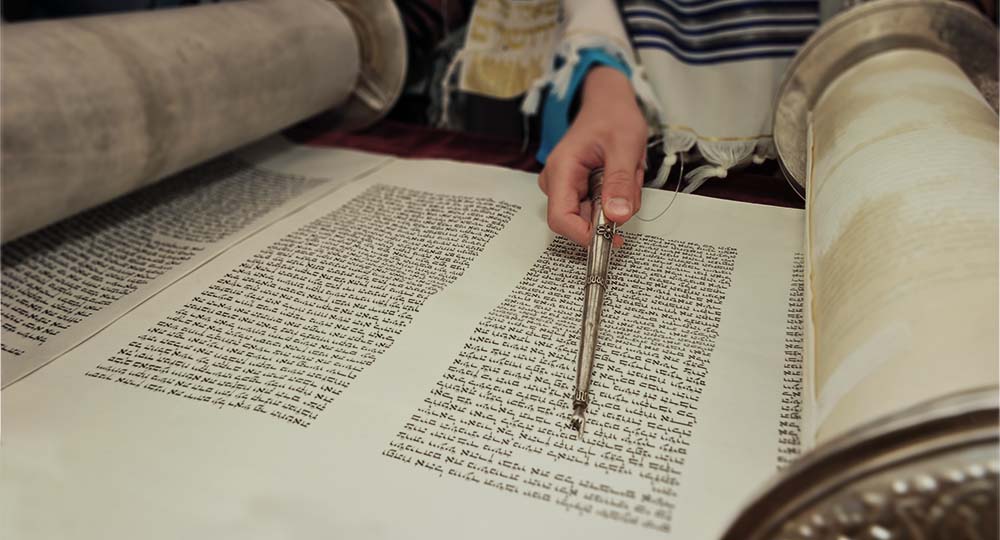The Confusion Cure
Some Christians say the Old Testament is no longer important. But that dangerous road leads to confusion.
I once heard a preacher say if you summed up the Bible in a few words, those words would be from a garden (Gen. 1—2) to a city (Rev. 21—22) with a cross in between.
The first two chapters of Genesis give us a glimpse of God’s Kingdom on Earth, when God saw “everything that He had made . . . was very good” (1:31). God’s relationship with Adam and Eve, along with the rest of creation, was in perfect harmony. Then sin entered the world when Adam and Eve disobeyed God (chap. 3). From that moment on, humanity became separated from God and in need of redemption. Earth’s title deed passed to Satan (Lk. 4:5–7); and God unveiled His redemptive plan, created before the foundation of the world (Gen. 1:1; 1 Pet. 1:20; Rev. 13:8).
Throughout Scripture, from Genesis to Revelation, God reveals how He will redeem us, return His Kingdom to Earth, and reign over humanity.
Yet today some Christian leaders claim the Old Testament is no longer relevant or important. They believe only the New Testament should be taught. But what about all the unfulfilled Old Testament prophecies? What about the scores of Old Testament verses concerning Messiah Jesus’ Second Coming? What about the many Hebrew Scriptures describing the Messiah’s future Kingdom? Do we ignore 39 out of 66 books?
Fragments Aren’t Enough
It’s no wonder many Christians today are confused. Without instruction in the Old Testament, they lack the Bible knowledge necessary to see God’s Word as a cohesive whole. They’re not taught God’s magnificent plan for the ages or Israel’s importance or how the New Testament rests on the progressive revelation of the Hebrew Scriptures or how the Hebrew Scriptures apply to them.
Consequently, many Christians today are traveling down unbiblical paths and embracing unbiblical doctrines—one of which is Replacement Theology. It teaches God is finished with Israel and the church has replaced the Jewish nation as the recipient of Israel’s divine promises. Some even say the land of Israel actually belongs to the church. Many Christians believe they are the ones who will usher in God’s Kingdom and Israel has no future whatsoever.
Unless we study the entire Bible, including the Hebrew Scriptures, we will never see the big picture. We’ll see only fragments; and we’ll never understand what is happening in the world today, why it is happening, or how it all will end.
There can be no clearer word spoken on the importance of the Old Testament than that which was spoken by Jesus Christ Himself. When walking on the road to Emmaus with two discouraged followers who failed to recognize Him, the risen Lord took the opportunity to open their eyes:
Then He said to them, “O foolish ones, and slow of heart to believe in all that the prophets have spoken! Ought not the Christ to have suffered these things and to enter into His glory?” And beginning at Moses and all the Prophets, He expounded to them in all the Scriptures the things concerning Himself (Lk. 24:25–27).
What Scriptures did He use? Certainly not the New Testament! It didn’t exist! Jesus taught from the Hebrew Scriptures in one of the greatest Bible studies ever.
The men had expected Jesus to deliver Israel right then and there from Roman rule and establish His long-awaited, earthly Messianic Kingdom. They could not understand why Jesus died. Their hopes were dashed. They needed to understand the Messiah first had to suffer as the final, sacrificial Lamb of God to redeem humanity from sin.
Jesus probably quoted from the book of Isaiah: “He was wounded for our transgressions, He was bruised for our iniquities; . . . and the LORD has laid on Him the iniquity of us all. For He was cut off from the land of the living; for the transgressions of My people He was stricken” (53:5–6, 8). Yet He “shall prolong His days” and receive “a portion with the great” (vv. 10, 12).
Isaiah clearly prophesied Jesus’ death and resurrection. In fact, Israel’s prophets provided hundreds of prophecies concerning Messiah’s First Coming so people would be able to identify Him (Isa. 7:14; 9:6–7; 11:1; 35:5–6; 53:1–12; Dan. 9:25–26; Mic. 5:2; Zech. 9:9). These prophecies help us today to verify Jesus’ Messiahship.
Perhaps the Lord also used Daniel 7:13–14 on the road to Emmaus, which explains the “Son of Man” (Messiah, v. 13) will have an “everlasting dominion” and a “kingdom . . . which shall not be destroyed” (v. 14). The two men on the road to Emmaus were correct in their concept of a restored Davidic Kingdom, but they were wrong about the timing.
Taking the Cure
The Old Testament also unveils the Abrahamic, Mosaic, Land, Davidic, and New Covenants—all given to Israel—which is why the apostle Paul told the Ephesians they were “aliens from the commonwealth of Israel and strangers from the covenants of promise, having no hope and without God in the world” (Eph. 2:12). The Ephesians needed the Jewish Messiah to save them so they could be grafted into the Jewish root.
Israel’s prophets could see the mountain peaks of prophecy and the glorious future that awaits Israel, but they could not see the Church Age valley in between. The “mystery” Paul spoke of in Ephesians 3 was that God would make Gentiles “fellow heirs, of the same body, and partakers of His promise in Christ [Messiah] through the gospel” (v. 6). The church did not replace Israel but, rather, joined believing Jews in the family of God.
When the Kingdom returns, with Israel’s Messiah ruling and reigning in truth and righteousness (Isa. 2:4; 11:1–9; Ezek. 40—48; Dan. 7:13–14; Zech. 8), the Jewish people will become preeminent (Isa. 2:2–3; 49:22–23; 60:12–16; Zeph. 3:20; Zech. 14:16–17). “In those days ten men from every language of the nations shall grasp the sleeve of a Jewish man, saying, ‘Let us go with you, for we have heard that God is with you’” (Zech. 8:23). Israel not only has a future, but Israel will be the future; and King-Messiah Jesus will rule the world from the throne of David in the Temple in Jerusalem (6:13; Rev. 7:15).
The Old Testament is rich with details about God, His plan of redemption, His purpose for Israel, the Great Tribulation (“time of Jacob’s trouble,” Jer. 30:7), the Second Coming, the Messianic Kingdom, eternity, and so much more. God gave us the Old Testament for a reason, and those who fail to study it are poorer by far and more likely to become confused and beset by error.
As Paul told the Romans, “Whatever things were written before were written for our learning, that we through the patience and comfort of the [Hebrew] Scriptures might have hope” (Rom. 15:4). The best cure for confusion and error is to study the entire Word of God and compare Scripture with Scripture. As the end of the Church Age grows closer, God’s prophetic Word becomes clearer. His Word gives us understanding and hope, and we should be excited and encouraged to have all of it at our fingertips.








I believe that Replacement tendencies have crept into the FBC Ellijay. The senior women I lead on Sunday Mornings seem unaware. This article equips me with the words in my heart, but I could not express them on my own. I love Israel and do not doubt that God’s Covenant with Abraham is unconditional and Eternal. Thank you!